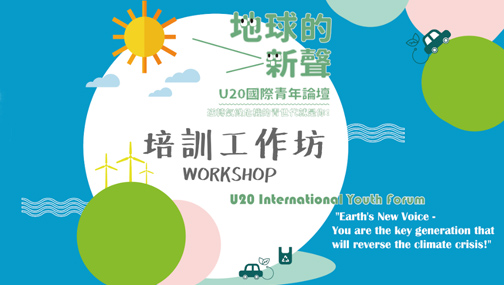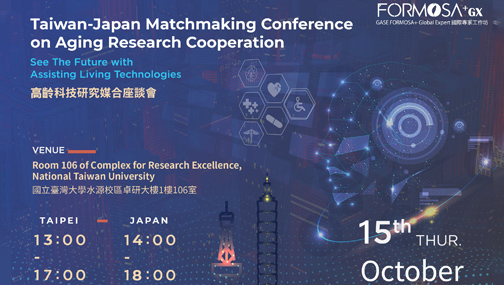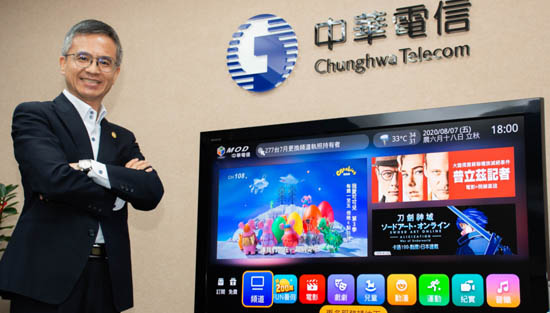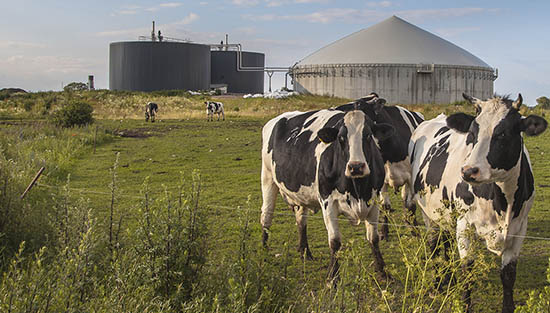
-
 Biomedicine Combining with Semiconductor to Precisely Treat Parkinson’s Disease - The Development of Prospective Miniature System-on-a-ChipAugust 26, 2020The demographic structure of global population is... Read More
Biomedicine Combining with Semiconductor to Precisely Treat Parkinson’s Disease - The Development of Prospective Miniature System-on-a-ChipAugust 26, 2020The demographic structure of global population is... Read More -
 A high throughput screening model done within 7 days by using a single drop of blood for inherited hearing lossAugust 13, 2020To act in concert with the “5+2 Industrial Innovation Plan”... Read More
A high throughput screening model done within 7 days by using a single drop of blood for inherited hearing lossAugust 13, 2020To act in concert with the “5+2 Industrial Innovation Plan”... Read More
Recently, Information and Communication Technology (ICT) has been widely used in various applications. As part of the ICT application, Artificial Intelligence (AI) and data analysis has become core technologies in various industries. ICT can be applied in the eHealth industry, including healthcare, disease management, public health, and genetic test. Moreover, ICT can be used in advancing vehicle structures and transportation infrastructures, which gives rise to Smart Transportation that provides safer and more comfortable transporting experience.
ICT has become the key developing field as it is related to smart manufacturing. Therefore, governments around the world are developing the Fourth Industrial Revolution (Industry 4.0), which includes the application of human-robot collaboration, remote monitoring, and smart tools. In 2020, the world is strongly hit by the pandemic, which inspires more businesses and industries to develop non-human factories or a more flexible business model that can increase operation efficiently and quality.... Read More
The applications of smart industries are booming around the world, including accelerating factory automation, monitoring of machine efficiency, effective commercial management and market forecasting, with the aim of “streamlining the business operations,” “creating the business intelligence” and “optimizing the capabilities of industrial facilities.” The Taiwan government is promoting 5+2 sectors of the economy to transform local industries. From the initial five “pillar industries,” namely, the Internet of Things (IoT), Biomedical, Green Energy, Smart Machinery and the Defense Industry, high-value agriculture and the circular economy were added. The purposes of promoting 5+2 industries by cooperation between industries, the government and academia are to spur innovation, to create well-paid job opportunities and to bring Taiwan a balanced regional and industrial upgrade.
This month’s research highlights include the research on building a self-sustained community with the production of green energy, intelligent manufacturing, using AI for machine tool monitoring and prediction, smart industrial automation for Taiwan’s traditional industries, an intelligent public air-cleaning facility, smart cloud edge computing and combining acoustic emissions and machine learning for the monitoring of machine health. We hope that through the introduction of the series of “Applications for Smart Industries,” readers will have a better understanding of the alternative solutions that Taiwan’s academic community is currently proposing to promote industrial upgrades and to enhance the quality of people's lives.

Editor in Chief
Ying-Shao Hsu (National Taiwan Normal University)

Guest Editors
Wen-Hsiang LAI (Feng Chia University)















